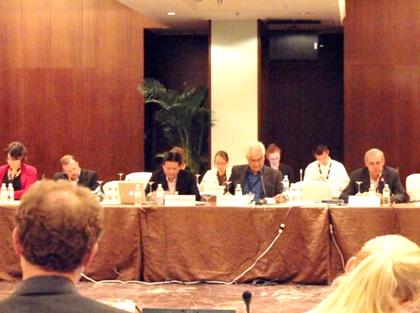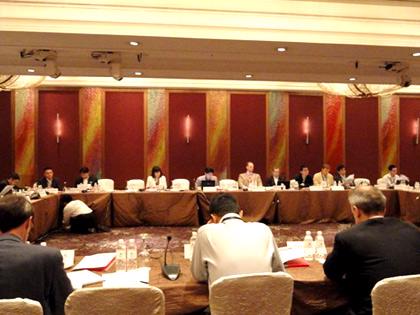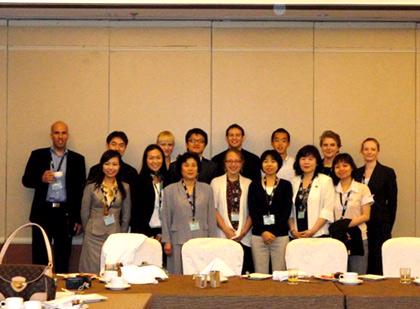

On 3 and 4 July 2010 in Singapore, the 11th meeting of the CSCAP Study Group on "Preventing the proliferation of weapons of mass destruction in Asia the Pacific" was held under the co-chair of CSCAP Vietnam and USCSCAP. Attending this meeting was more than 50 security experts from regional countries, including some members of the ASEAN Regional Forum on Anti-proliferation and disarmament participated as individuals.

In two days, delegates focused on discussing two main topics which are the initiatives against nuclear proliferation and disarmament as well as the recent situation of nuclear security in Asia and the Pacific in the context of the countries in the region being increasingly interested in nuclear energy as an alternative energy source to cope with the recent energy crisis.
According to the assessment, the situation of nuclear non-proliferation and disarmament in recent years there has experienced some notable changes. Although at present the possibility of a nuclear war has declined dramatically, the percentage of nuclear weapons ownership in the world tends to increase; this requires more effort to promote the areas as well as international issues and nuclear non-proliferation and disarmament. The delegates said that while the nuclear threats mainly come from tensions in Northeast Asia, regional security complex is now also required to maintain nuclear weapons as a means to deter and prevent conflict escalation.
Therefore, the question for the international community is to find a possible means to ensure peace, security and long-lasting stability in order to replace nuclear weapons, before it can be completely eliminated. In addition, nuclear security in Asia and the Pacific is a key agenda in the Study Group because this is becoming a concerning issue when Northeast Asian countries are increasingly dependent on nuclear energy and other Southeast Asian countries increasingly show signs of interest in nuclear energy sources as a replacement of the traditional energy.
This situation requires efforts to promote multilateral cooperation in unifying the regional safety standards in the area of nuclear energy production, as well as in ensuring the access possibility to safe nuclear fuel, waste and used fuel processing, and procedures development and mechanisms to deal with risks that may occur.
In this context, the meeting acknowledged the role of multilateralism mechanisms in promoting the prevention of nuclear proliferation and the development of safe nuclear energy in the region, but also emphasized that these multilateral efforts should be strengthened; particularly, forums and sub-regional and regional multilateral organizations, such as ASEAN Regional Forum (ARF), the East Asia Summit (EAS), ASEAN, the six-party talks ... should consider the establishment of the non-reprocess and uranium concentrate area and establish appropriate measures to prevent the violation or negativity by abusing the NPT’s loophole.

At the end of the session, participants examined and assessed the contents of documents “CSCAP Handbook on preventing proliferation of weapons of mass destruction in Asia and the Pacific compiled by the Study Group (see in http://www.cscap.org) and the draft CSCAP Report on Peaceful Use of nuclear energy. The Study Group also discussed the action orientation in the near future, including plans of holding the next 12th meeting on 11 December.
* In parallel with the 11th meeting of the CSCAP Study Group on "Preventing nuclear proliferation in Asia and the Pacific", the Young Leaders Program by the Pacific Forum - The Center for Strategic and International Studies was held with the participation of 13 representatives who are research students and young researchers from many countries in Asia and the Pacific region. This is an annual program aiming at creating conditions for regional youth’s exchanges, acquirement and awareness expansion of regional security issues, while contributing a voice in forming the issue – related policies...
Joining this program, in addition to attending meetings of the CSCAP Study Group on "Preventing nuclear proliferation in Asia and the Pacific" and encouraged to express opinions, views in this session, regional young leader participants had the opportunity to contact with the regional leading security experts on nuclear sector.
The program this year also created conditions for the Young Leaders representatives to have an interview with Ms. Son Choe Hui, the Senior Researcher of the Research Institute for Peace and disarmament of North Korea - took part in the 11th National Meeting of the CSCAP Study Group on "Preventing nuclear proliferation in Asia –and the Pacific" - on regional security issues.
